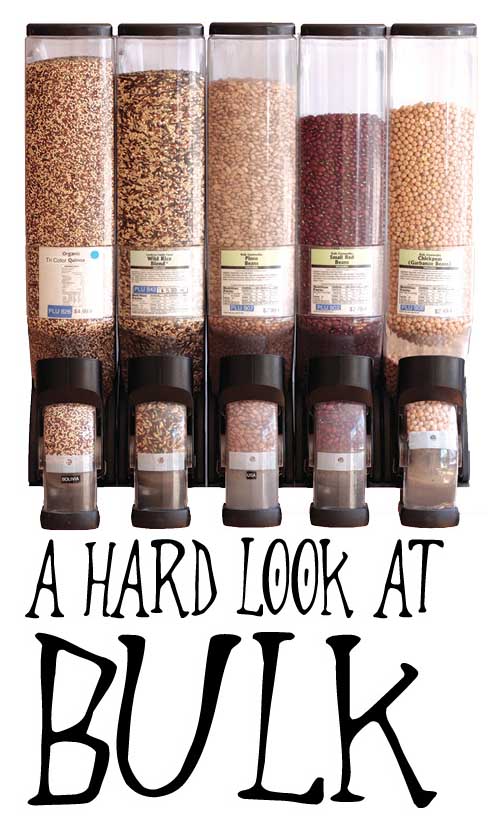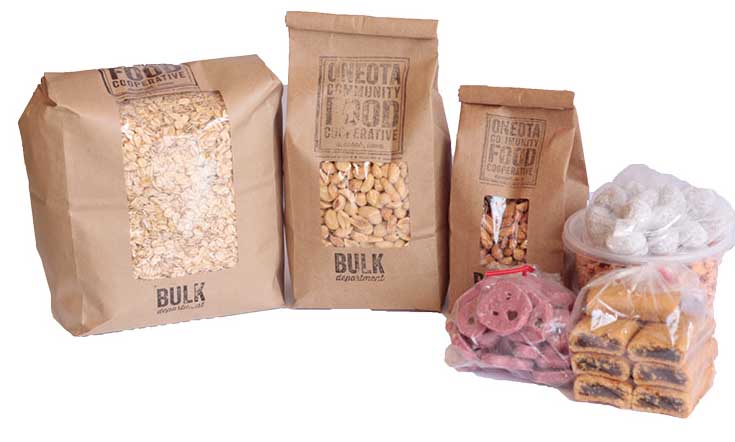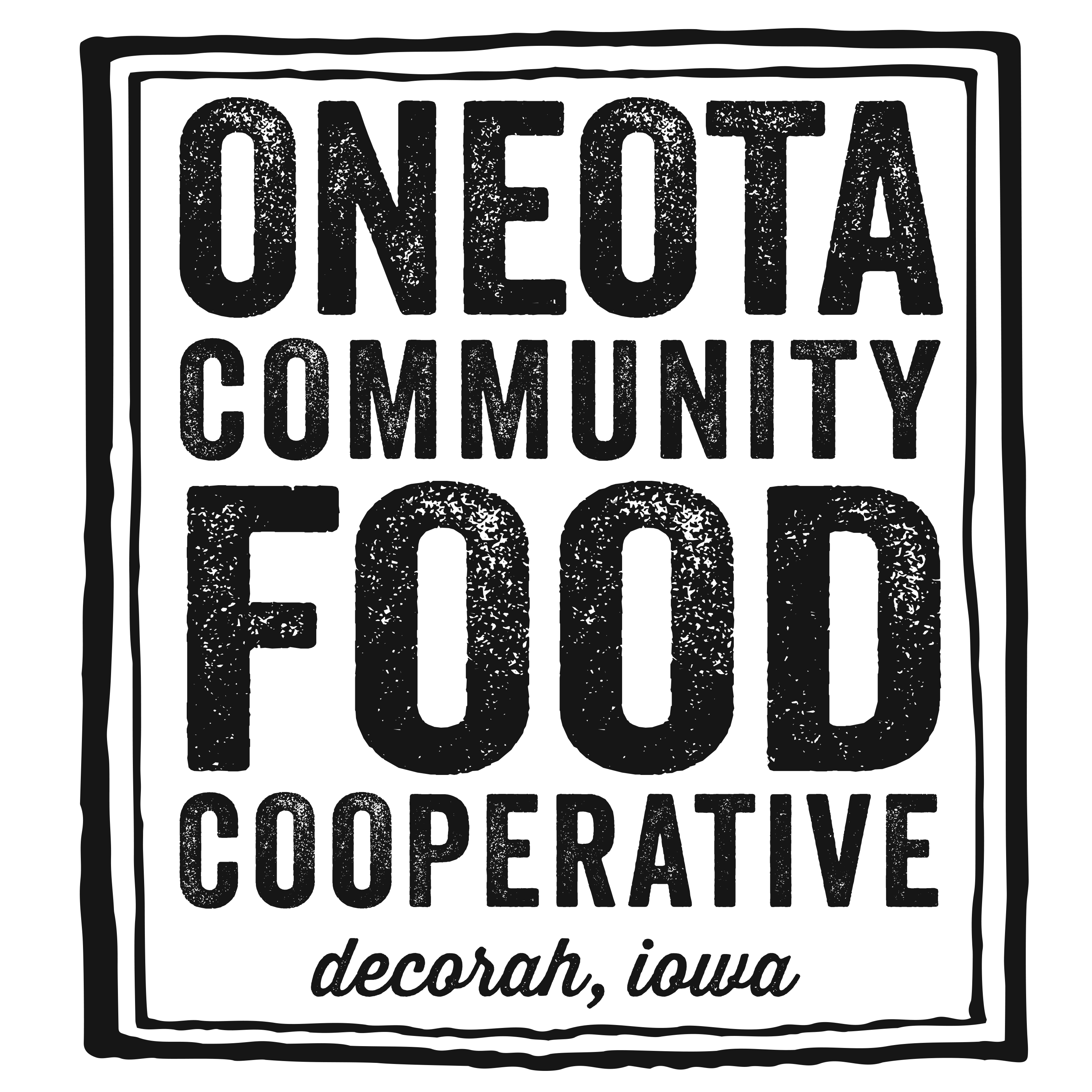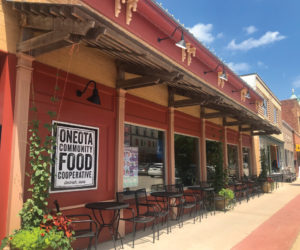 By: Nate Furler, Marketing and Outreach Manager
By: Nate Furler, Marketing and Outreach Manager
Though not as frequently these days, you might see one. Walking through the front doors, their reusable bags already full of containers – yet they haven’t even been through the store. Sometimes they carry boxes of containers. New and old, glass and plastic containers, oftentimes labelled with tape – or marker written directly on the container. Watching them unpack these gems is like watching history unfold.
The person to which I am referring is the seasoned bulk shopper. Watching them, in my mind I am reliving the experience when I would open my grandmother’s cupboards to find things like sugar, flour, baking soda and spices in reused, relabeled containers not virgin in their use. The Tupperware, tacky on the outside, with a half melted lid from the mistaken placement on a hot burner. The marshmallow tin with its branding nearly worn off from reuse.
My grandmother was a bulk shopper. I am a bulk shopper. But the fact is, there are fewer of us these days.
The Oneota Co-op is deeply rooted in the concept of bulk shopping. The Co-op started as a group of people getting together to order larger quantities of items packaged more efficiently (and cost effective) which they would later put into their own, reusable containers to take and use in their own home. A buying club as most would think of it. It was a dream, and it is still a reality at most food co-ops. It has even become a reality at some conventional grocery stores. As you can tell, I am a fan.
Unfortunately, this genus of grocery shopper appears to be on the decline. We see it in the numbers and sales trends. Not just at Oneota, but at food co-ops across the nation. These numbers tell us that we need to take a serious look at things and honor what the trends tell us. We need to fine tune our offerings for the long term health of the Co-op as a whole.
As you can imagine, this isn’t a small project nor one that we take lightly at the Oneota Co-op. Bulk is the way we began our organization. It is a way of shopping that we respect and a mission we seek to propel into the future. The Bulk department is not going away, but we will be making changes to how it functions and the products we carry. We will seek to make the ride as smooth as possible for everyone.
Between our Grocery Manager – Kristin, Bulk Buyer – Carl, Grocery Buyer – Frances, and me, we have spent months pouring over figures and strategizing what to do to optimize the sales and efficiency of this department. We have pulled historical sales data, looked through catalogs, explored fixture and packaging options, put a bulk survey out for shopper input, and had difficult conversations while pouring over spreadsheets of data.
Bulk Data
You may find it interesting to know that we sell very small amounts of many items from Bulk in a month’s time. Items like Dried Whole Bananas, Amaranth, Rye Berries, Maple Syrup Granules, Hummus Mix, all types of Bulk Pasta, certain varieties of Chunks of Energy, Sucanat, and Commercial Granulated White Sugar are not big sellers. This represents a snapshot of the items that we know we need to make hard decisions about in order to keep this department a vital part of our overall store.
When looking at the sales patterns of these items, we not only look at the amount of money that item makes in a certain amount of time, but also how long that item can remain fresh sitting on the shelf. The shelf life of a product varies greatly depending on the moisture, oil, and sugar content of any particular food and its exposure to outside air, moisture and temperature.
Survey Results
The survey concerning Bulk shopping and products was an online survey and was only posted for a limited time this past June/July. In that time, we received over 200 responses. The results were informative and in some cases confirmed our thoughts on the matter.
Concerning frequency of shopping the Bulk department, survey participants responded that 36% shopped the Bulk department once a week, followed by 26% shopping the department once a month, and 17% shopping less than once a month.
Of the 194 survey participants that said they shopped bulk (there was an option to choose that they didn’t shop Bulk), 54% use a mix of some of their own empty containers and some new containers or bags available in the store. What seemed surprising to us was that 32% of the respondents to the survey ONLY use new containers when shopping the Bulk department. When looking back, this should not come as a surprise because our usage of these containers and bags has risen considerably over the past several years. Suffice it to say that we are looking at a whole new generation of bulk shoppers and they do it differently than past generations when it comes to packaging.
When looking at what products people consistently do or do not use their own containers to fill and purchase, candy items were at the bottom of the list with customers nearly always using new packaging from the Co-op each time they purchased these. Coffee is also an item that most individuals utilize new containers for each time they purchase it in bulk. On the opposite end of the spectrum honey, vanilla, oats, oil, vinegar, and sugar ranked highly as items that customers use predominantly their own containers to refill. As we sell a large amount of our organic, local, and/or fair trade coffees in bulk and pre-packed, coffee drinkers should feel confident that this section will remain unchanged. However, candy is slated to become a pre-packaged item in general and it bears noting that the amount of space gained from this one category changing from tall bins to small bags will be dramatic.
The next question was an attempt to get into the mind of the Bulk department shopper to determine what most propels them to shop in that department. The results were split evenly with product availability ranking first at 36%, followed by saving waste
at 31% and saving money at 27%.
The Future of Oneota Bulk
At the time of writing this article (early August) we have more decisions to make concerning fixtures, products, and workflow before settling on a plan for the department. The sad reality is that one or two customers purchasing a product in a month’s time will not allow us to ensure that the item is fresh, and, additionally, it is not the best business practice to keep shelf space allocated for that product.
As a dedicated bulk shopper for many years, it saddens me that this trend has emerged. It has proven to be a complex issue and drilling down to the root cause has been a challenge. Sometimes pricing of bulk items is not as advantageous for the store and shopper as it used to be. But, I believe for the most part, people simply don’t want to put the effort and time into reusing their containers to save waste. I believe this is likely due to the satisfaction of throwing an item into the recycle bin versus the trash can. It just doesn’t feel as “dirty” even though recycling materials is extremely energy intensive, environmentally taxing, and costly. You may feel good that you are keeping items out of the landfill by recycling them, but the environmental cost is still large. In fact much more costly than caring for a container and reusing it over and over for a lifetime.
In a day and age when mindfulness is a buzz word, let’s not forget the mindfulness we can have every week, sometimes every day, when we shop for the food that sustains us. It is our responsibility to live in a way that does not degrade the quality of life for the generations that follow. Shopping Bulk, using less packaging, and choosing organic when possible, are all small ways that our everyday actions can make the future better.
The nice part about the threatened existence of bulk shoppers is that you don’t have to wait lifetimes to change the population of this species. You can do it now. Today. You, yourself, can turn the tide and make bulk shopping as robust and glamorous as it once was. You can make it a renewed staple and cornerstone of food co-ops everywhere – including Oneota.
We will keep member/owners and customers updated on our movement forward and hope that you understand the difficult task ahead. Please know that we want your feedback as well and that in most cases special ordering of large quantities of bulk items will still be possible.
In cooperation,



